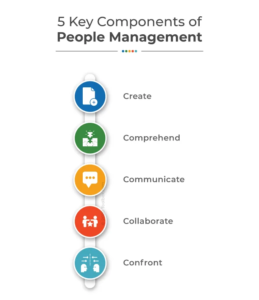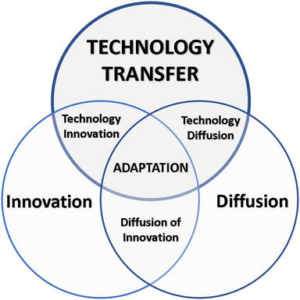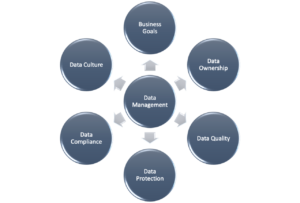
- +91 84204 42189

- +65 3159 4092
Digital transformation consulting services Uncategorized | By Admin
What is digital transformation for smes? Etymologically, transformation has been defined by Cambridge dictionary as “a complete change in the appearance or character of something or someone, especially so that that thing or person is improved”. As evident as it can get, transformation ultimately aims at significant improvement. Well, this masterguide will cover all that you must know for a complete 360° digital transformation of your SMEs. Digital transformation is the integration of digital technology into all areas of a business, fundamentally changing how you operate and deliver value to customers.
It is useful to note current SME scenarios, trends such as block chains based supply chain management, embedded finance and SuperApps calls for an in depth digital optimization.

Current digital transformation trends in SMEs :
Unlike old times, the world now has evolved beyond just brawn and brain. Smart work and not hard work has now become the supreme mantra. To ease up the operational activities, tools such as Super apps provide a one stop destination and help with keeping proper records of accounts and operations. A good diagnosis and performance analysis can be facilitated from the past records and logs which ensures a thorough supervision and smooth workflow. Digital transformation also enables faster response to client queries and provides better conflict resolution strategies. Study shows that in the last business year over $92 billion was channeled into financial tech. As revolutionary as it sounds, cryptocurrency based operation has further alleviated transactional hassles making the operations even smoother in the COVID19 period. Not only that, recently European banks are anticipating the introduction of ‘Digital Euro’. Digital wallets such as PayPal, BharatPe, Gpay help keep an easy track of expenditure and investment from smallest to biggest amounts whereas easy EMI systems work as replacements.
With these current scenarios and evolving trends, the nature and role of money in businesses has changed significantly. Money, now, is embedded into our personal choices and identity. Consumers’ jobs, lifestyles and habits as sources of personal data are greatly intertwined with money and investment.
Check our latest webinar on Digital Transformation for SMEs –
Three pillars of digital transformation :
There are three important components of a transformation in digital transformation. These pillars if closely followed and adopted can lead to touchstone improvement in strategic and operational performance.
One of the key aspects of any business of any size or sort, is people management. Managing people can be hassling. Even a small gap in supervision can lead to serious damage in workflow. To manage people effortlessly, there must be a smooth communication between all concerned levels. Mostly in organizational structures power is flown top down. This introduces anxiety into the working environment.
When digitally transformed, the top down powerflow is changed and better teamwork is built. This change can happen because of revolutionary technologies which enable performance analysis and regular progress reporting.
Along with this HR management can also be radically transformed through digital HR strategy. This simply means that most of the work that happened manually through hours and hours of laborious effort can now be eased with SMAC (social, mobile, analytics and cloud) and HCM (cloud-based human capital management). A digital upgradation in HR management guides the entire process starting from recruitment, training to final onboarding. Benefits include integration of repetitious

Adaptation of newer technologies readies up an establishment for the increasing market competition in our global village. Automation of manual hardwork in works such as inventory management, customer interaction and accounts management can increase performance efficiency by 80%. It also facilitates better access to cloud workers and close monitoring that ensures data safety. Trend and report analysis at workers level can enable identification of gaps and lead to implementation of healthier strategies.

Data optimization mainly happens through IoTs, cloud computing and mobile technologies. In order to learn more on this, let us first understand how many types of data can be there. One of the most important data types is Big Data which simply is data of huge bulk and variety. Fortune business presents an interesting data, The global big data analytics market size was valued at USD 271.83 billion in 2022. The market is projected to grow from USD 307.52 billion in 2023 to USD 745.15 billion by 2030, exhibiting a CAGR of 13.5% during the forecast period. This huge amount of data calls for CRM and ERP systems to be in use for maximum output which is further backed by social media and site surfing. In addition to this, analyzing data collected from customer queries and requests posted through social media, in App chats, CRM, online reviews, quora threads, and website traffic leads to an in depth analysis of customer demands and the setbacks that can pop up in the process. An analysis of these factors helps to improve customer service response rates, generate fresh data, formulate digital products and services, and manage other procedural tasks that hide beneath plain sight. After all, when it comes to business the one with maximum insight wins the last lap. Keeping in mind, all these aspects a brand can significantly increase its scalability and look for unhinged progress.

However, digital optimization in SMEs is not a cakewalk as it comes with its own challenges. One of the most noticed concerns for many entrepreneurs has been the question of direction. The sector being new, has no one mantra that can work as a roadmap universally. The products generated for different SMEs have different needs and different formulaic strategies for digital optimization. Success stories can definitely be inspiring but detailed risk analysis is always a must do. It is often noticed that change is not welcomed by many as it involves potential risk.
Fear of risk :
In an article published by Richard Herring from University of Pennsylvania identifies three types of risks that companies are most hesitant for, “We have seen a tendency to separate risks into rigid silos — operational risk, market risk, credit risk and so on ..” The fear of risk often makes one resistant to positive changes and decision making becomes short sighted.
Budget and Time :
For SMEs, the budget is a big setback. Optimization comes in a test trial module therefore, one cannot guarantee the outcomes. It is ultimately a part of business. Therefore one has to take the leap if maximum output is sought. Moreover, the global competition calls for rapid upgradation to meet which, money and time both have to be greatly invested. Real time business can only happen if the operations are smooth which, in today’s world, stands almost impossible without optimized labor.
Skills and Knowledge:
As SMEs do not hold huge resources both in terms of capital and manpower, the industry sometimes faces real challenges in finding skilled people who have thorough understanding of digital resources and how to implement them. In this case, extensive training can do wonders. If the knowledge gap is bridged, areas like data protection impact assessments, data breach notifications, data subject access requests, or data audits can be better handled. Third party breach and external risks may also be minimized. Potential customers always look for transparency, knowledge and choice regarding their data, along with productive outcomes. This demand is often difficult to meet but with the right leadership, SMEs can cater to all of it effectively to build trust and goodwill.
If you need any help regarding your digital transformation projects? Talk with our experts here.
Role of leadership in SME optimization:
A leader’s task is to guide transformation of any sort in a productive and positive direction. A leader also manages, plans and facilitates necessary steps and measures required for the transformation to happen. As a leader one must identify the transformation goals, chalk out strategy, do SWOT analysis, indulge in discussions. Investing in new talents who understand digital platforms and current trends is always a good way to go. Secondly, one can also look forward to scheduling training sessions for concerned workers to create a digital culture. Along with training a leader should also look for whether or not the lessons learnt are being properly executed. An effective communication can bridge divisions of background or prior knowledge leading to a properly digital, thoroughly transformed work environment.
To conclude, digital transformation is no longer just a buzzword but a necessity for SMEs to survive and thrive in today’s competitive business environment. SME leaders need to embrace a digital culture, invest in digital tools, hire the right talent, and continuously evaluate their digital transformation progress to stay ahead of the curve. Digital transformation can bring many benefits, from streamlined workflows and increased productivity to better customer experiences and increased market share. With the right leadership and strategy, SMEs can successfully navigate the complex world of digital transformation and emerge as winners in their respective industries. A company must set the right kind of expectations before starting out on the transformative journey. SMEs to prioritize and invest in digital transformation to remain competitive now and in the future. Finally it is important to note that the transformation as a process calls for right guidance.
If you think you are ready for making the big leap let us help you. BizzmanWeb has a team of expert digital transformation consultants who can help you strategise, plan and execute a robust transformation programme. Call us at 8420442189 or visit here.

Want to scale-up your business?
Write a Reply or Comment